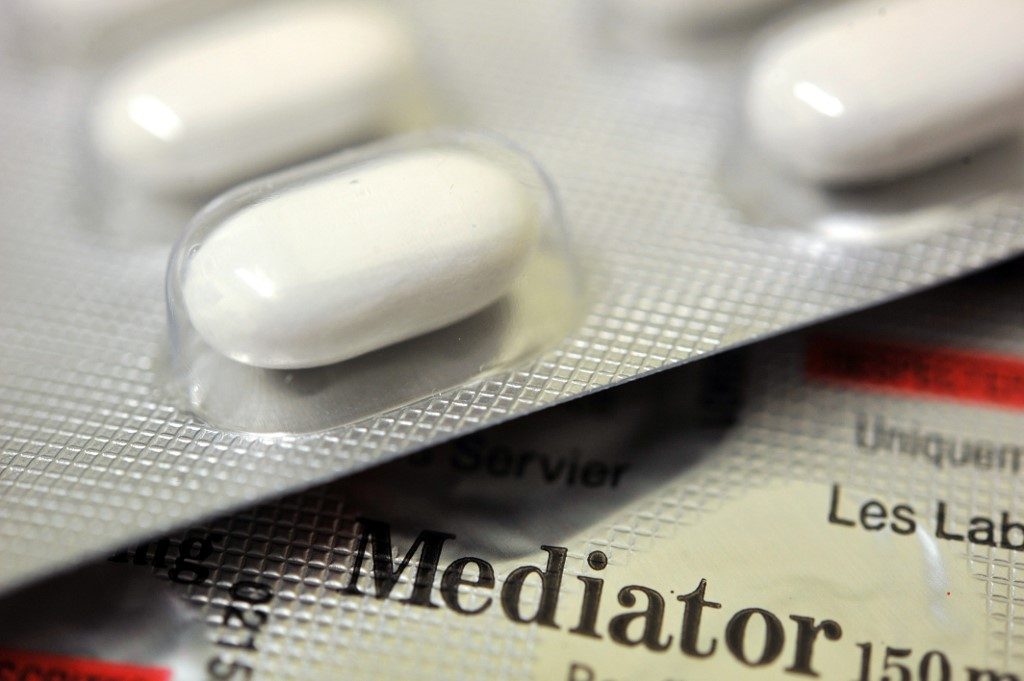SUMMARY
This is AI generated summarization, which may have errors. For context, always refer to the full article.


PARIS, France – France’s medicines watchdog and pharma firm Servier went on trial on fraud and negligence charges on Monday, September 23, over the use of a diabetes pill prescribed for weight loss that has been blamed for the deaths of hundreds of people.
At least 500 people are thought to have died in France after taking the drug Mediator in a major health scandal that was the subject of a 2016 French movie called 150 Milligrams.
The film is based on the work of campaigning lung doctor Irene Frachon, who was instrumental in bringing the alleged wrongdoing to light.
Safety alerts were first flagged in the mid-1990s, and Frachon raised the alarm after noticing in 2007 an apparent pattern of heart problems in people who had used Mediator.
Frachon, one of about 100 witnesses set to testify in the six-month trial, on Monday slammed Servier for its “endless denial of responsibility”.
“This is a critical moment, as we have been waiting for this criminal trial for years,” she said outside the courtroom that will host the trial for 6 months.
Mediator was on the market for 33 years and was used by about 5 million people. Initially intended for overweight people with diabetes, the drug was widely given to healthy individuals as an appetite suppressant.
Experts have projected it may cause as many as 2,100 deaths in the long term.
The criminal trial against Servier, 9 subsidiaries, and the ANSM medicines watchdog – known at the time as Afssaps – will focus on 91 victims, 4 of them deceased, for whom lawyers believe a link can be shown between their illness and Mediator.
The drug-maker, said victims’ lawyer Charles Joseph-Oudin, “had deliberately lied and hidden the drug’s dangerous properties” and did so for “profit”.
But Servier insists it was not aware of the risks before 2009 when the drug was banned in France. By then it had already been outlawed in the United States, Spain and Italy.
The hearing will resume on Wednesday, to allow lawyers the time to respond to the procedural points raised.
‘Poison’
After a years-long investigation, Frachon published a book in 2010, the same year the Afssaps watchdog linked at least 500 deaths to Mediator.
Nine years later, Servier, one of France’s biggest pharma firms, stands charged with fraud for allegedly concealing Mediator’s risks, while the ANSM is being pursued for negligence and allegedly dragging its feet in suspending the drug.
They risk a fine or an order to compensate victims.
Twelve individuals on trial include former Servier number two Jean-Philippe Seta, doctors who were members of the medicine watchdog as well as pharma company consultants, and former senator Marie-Therese Hermange who produced a report said to be favorable to Servier.
“Servier knew that it was selling poison,” said 71-year-old Joy Ercole, who took Mediator for 6 months 10 years ago, and said she suffered heart damage as a result.
“The unlucky ones, like me, are condemned to a slow death. My life is ruined.”
Others who took Mediator say they suffer from symptoms including a shortness of breath, loss of appetite and fatigue, which makes physical activity and sport difficult to undertake.
In 2015, a civil court found Servier negligent for having left “defective” medicine on the market.
Victims have submitted nearly 10,500 claims for compensation from Servier, and many have accepted payment in return for not taking part in criminal proceedings.
Servier’s website states it has made offers of compensation to more than 3,700 sickened people for a total amount of 164.4 million euros ($182 million), of which 131.8 million euros have been paid out.
France has seen other medical scandals in the past.
These include 36 baby deaths in the 1970s linked to a contaminated talcum powder, HIV-contaminated blood given to haemophiliacs in the 1980s, and the recent discovery that a popular brand of breast implants contained a cheap, industrial-grade – not medical-grade – silicone gel. – Rappler.com
Add a comment
How does this make you feel?
There are no comments yet. Add your comment to start the conversation.